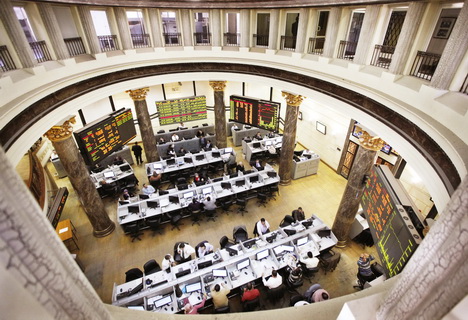LONDON: During US Secretary of State Hillary Clinton’s recent tour of the Persian Gulf — which took her to the United Arab Emirates, Yemen and Oman, and ended in Qatar for the Forum for the Future — she repeatedly insisted on the importance of governments collaborating with civil society by opening economic and political spaces for participation.
As she underscored the growing frustration among Arab youth, Clinton also cautioned against opening the doors to terrorism and extremist groups that prey on desperation and poverty, and that would fill the vacuum left by governments’ failure to meet people’s needs. These words bore a special significance in light of recent events in Tunisia, Egypt, Yemen and Algeria where protestors called for ousting their president and in Jordan where activists pressured the prime minister to resign. This is something Arab leaders can no longer ignore.
The Forum for the Future, a yearly gathering of Arab senior officials and leaders of civil society is a joint initiative of the countries of the Broader Middle East and North Africa region (BMENA), and the industrialized countries of the Group of Eight (G-8). In addition to these and private sector actors, more than 30 foreign ministers from all over the world participated.
The forum is a unique platform to build frameworks of collaboration for future activities. Each year, participants examine advances made in political reform and human rights. Other reform priorities include enhancing the economic and political participation of women and youth, as well as narrowing the impunity gap and promoting the rule of law in the countries of the Arab region.
It is clear that good governance cannot be achieved without bridging the gap between people and leadership, and without including all segments of the population in the decision making process.
In that context, Clinton stated that those who “cling to a status quo” would not be able to do so forever. Moreover, she warned that stagnant Middle Eastern political systems are not prepared to face the economic challenges to come, such as the need to diversify sources of income in advance of an inevitable decline of natural resources in oil-rich countries.
The timing is right. In Tunisia, as well as in Egypt, unemployment and poverty was the trigger for a wave of unprecedented popular protest that led to the ouster of their respective heads of state. This is a first in contemporary Arab history and whatever the future brings for Tunisians or Egyptians, it definitely marks a turning point for all Arabs.
The revolt of the Tunisian and Egyptian people have found strong support around the world, and inspired many Arab youth to voice their solidarity. On various social media platforms as well as on the streets, the educated youth bulge that is still facing high unemployment showed us they will no longer be silenced.
It is safe to say that engaging the population in the political process and presenting them with meaningful ways to contribute is not the forte of many Arab nations. It is certainly not the case in the corrupted institutions of hereditary republics. Nor is it the practice in monarchies of the Persian Gulf where rentierism resiliently challenges the development of a strong civil society and hinders the democratization process.
But if leaders don’t listen now, both the economic sustainability and political stability of their countries could be at stake. Commitment to collaborative opportunities, such as the Forum for the Future, is helping pave the way for the change that must take place. Indeed, a report of a G8-BMENA sub-ministerial meeting notes a “widely shared perspective that the ‘tone’ of the government-civil society conversation has positively evolved since the first Forum in 2004.”
Still, there is much room for improvement as the reports for this year’s workshops, in which members of civil society were involved, called for more transparency and confidence between the private and civil sector. Indeed, according to one report, there is “need for the participation of civil society as an essential partner in resolving conflicts and not as a marginal body”. This is what the people have to say, both in the framework of the Forum and on the streets.
Nada Akl is a freelance journalist from Lebanon pursuing a Master’s degree in the School of Oriental and African Studies (SOAS) at the University in London. This article was written for the Common Ground News Service (CGNews).



